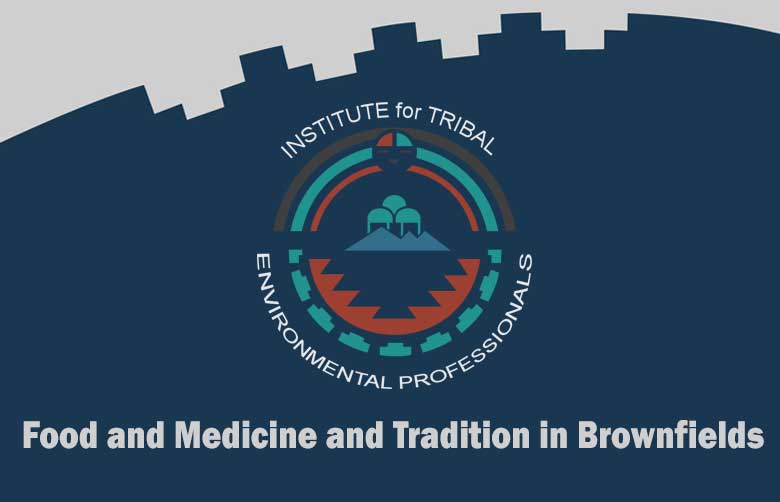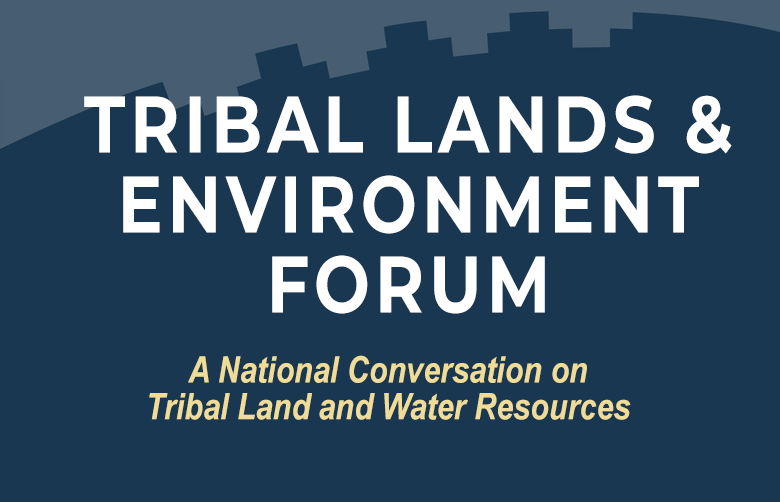
Incorporating Food, Medicine, and Tradition into Your Brownfields Projects
We recently held a two-day virtual gathering focused on ways to incorporate food, medicine, and tradition in brownfields work
Here you will find:
This year’s TLEF takes place Oklahoma City, Oklahoma and we are keeping it a hybrid event. This means you can attend, and participate, either in person or virtually.
For more information please contact:
Todd Barnell Todd.Barnell@nau.edu
We communicate the concerns and perspectives of Tribes to US EPA staff and leadership.
TLAC is a resource for Tribes and Tribal communities facing contamination or the threat of contamination.
Since 2014 we have matched scores of Tribal professionals with their peers at other Tribal Nations and Alaskan Native Villages.

We recently held a two-day virtual gathering focused on ways to incorporate food, medicine, and tradition in brownfields work

The Tribal Lands and Environment Forum (TLEF) is a joint effort between the Institute for Tribal Environmental Professionals (ITEP), the Tribal Waste and Response Steering Committee (TWAR SC), and US EPA’s Office of Land and Emergency Management (OLEM).
While the Western-science approach can be valuable in restoration efforts, it isn’t the only lens through which to view traditional knowledge. “The four-legged, the winged, the finned—we call them our brothers and sisters of the earth.” —excerpt…
Todd Barnell
Program Manager
Todd.Barnell@nau.edu
Julie Meikowski
Assistant Manager
Julie.Meikowski@nau.edu
Amanda Kapp
Program Coordinator, Sr.
Amanda.Kapp@nau.edu
Your tax deductible donation supports ITEP’s programming efforts.
Please contact us if you would like to contribute to our endowment or for any additional information regarding donations.
Program Manager/Restoration Coordinator
Working with the Tribe since: 2005
Rebecca is the Program Manager for the Tribe’s Natural Resources Department-Hazardous Waste Management Program. She also serves the role as the Restoration Coordinator with the Restoration Partnership. Rebecca has been working on water quality related issues for over 19 years. She represents the Tribe in the Bunker Hill Mining and Metallurgical Complex Superfund Site working with EPA while implementing their remedy for the Basin. She is also the Tribe’s Restoration Coordinator for the Restoration Partnership for which all Natural Resource Damage Assessment (NRDA) claims have been settled and on the ground restoration work has been underway since 2019. Rebecca continues to work with other Tribes on NRDA issues while coordinating with the US DOI, USDA, and the State of Idaho.
Rebecca is a proud member of the Tribal Waste and Response Steering Committee where she also serves on the Tribal Superfund Work Group and Advisory Council. Rebecca enjoys x-country skiing in the winter, summertime water sports, Frisbee golf, and spending time with her friends, family, and blue heeler. Rebecca is very honored to work for the Coeur d’Alene Tribe and is proud to be a part of restoring natural resources in the Coeur d’Alene Basin.
Rebecca can be reached by e-mail at rstevens@cdatribe-nsn.gov.
The National Tribal Forum on Air Quality (NTFAQ) aims to support tribal programs by fostering information-sharing and networking opportunities that are focused on building tribal capacity in air quality management. The event’s agenda is driven by tribal input and priorities, with a focus on increasing tribal engagement in air quality initiatives that are relevant to tribal communities across the nation.